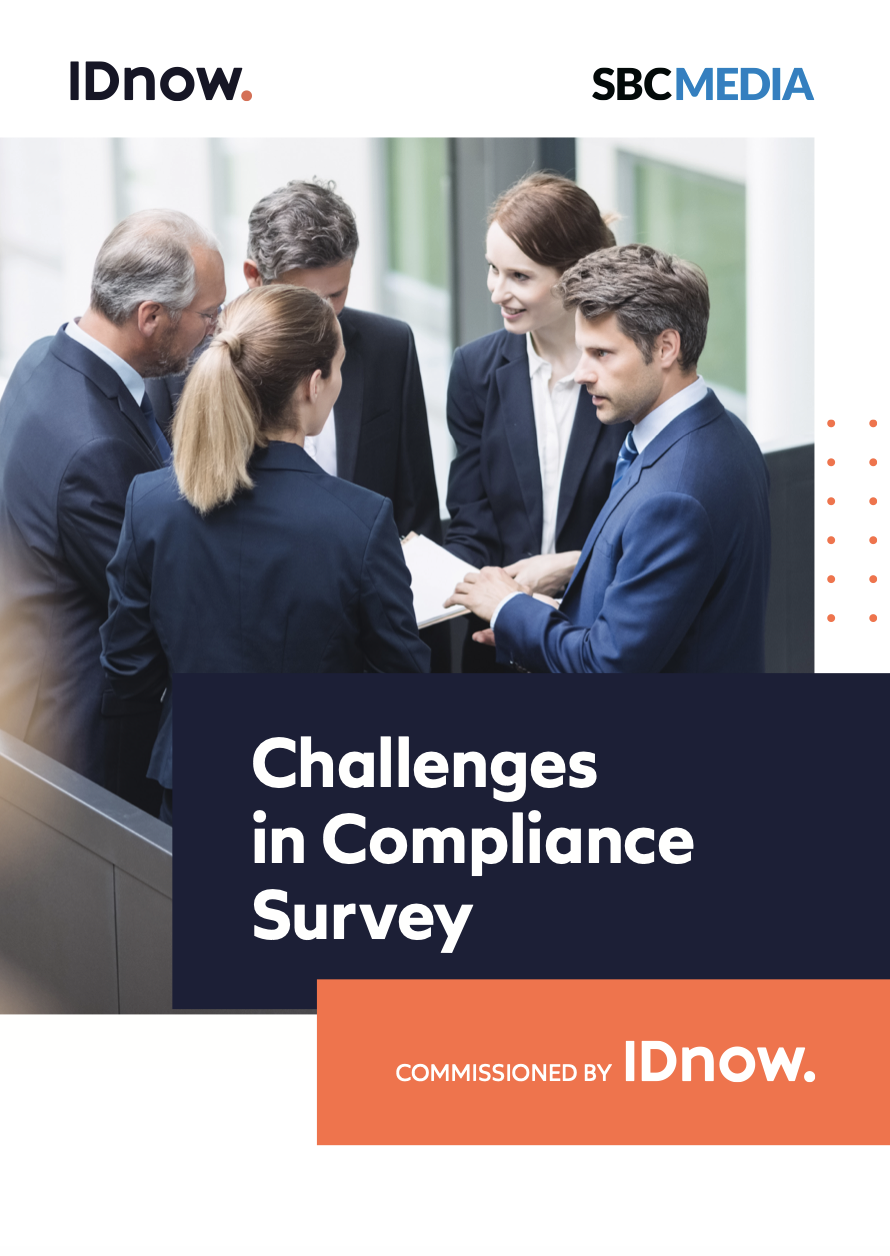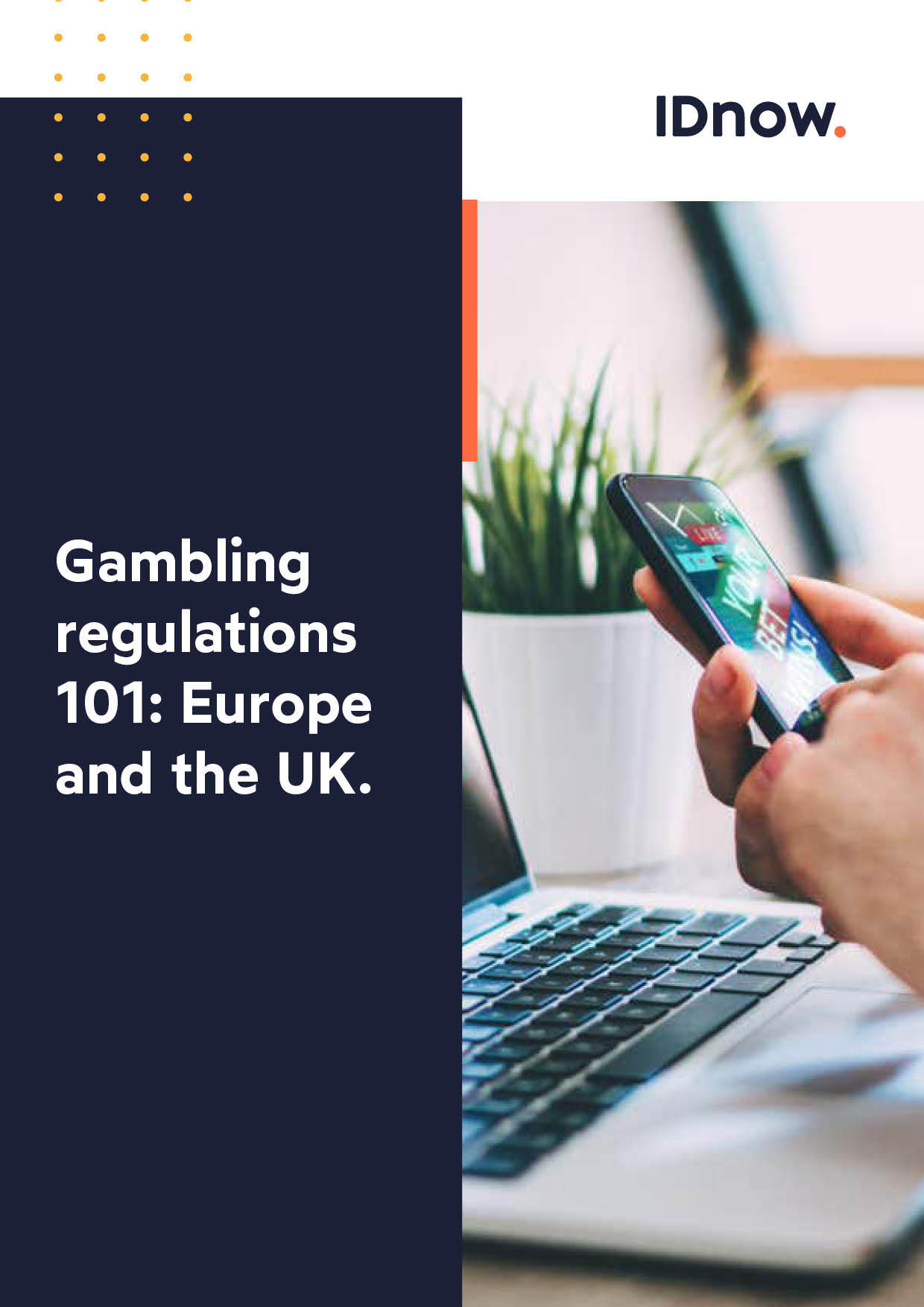Check out our comprehensive guide to gambling compliance, covering everything from the relevant regulations, cross-border operations, AML compliance, KYC requirements, data protection, responsible advertising, and employee training.
In a bid to reduce the risks associated with gambling activities, each national government and regulatory body establishes rules to govern different aspects of the sector.
Complying with gambling regulation is a never-ending challenge, especially for multi-jurisdictional operators, as they need to keep abreast of developments in the industry, and the launch of new markets and ‘games of chance’.
For a deep dive into the compliance challenges facing global gambling operators, including analysis of some interesting regional differences, read our ‘Exploring the gambling industry’s top compliance challenges in 2024 and beyond’ blog.
What is gambling compliance?
Gambling compliance refers to the adherence of gambling operators and gambling-related entities to the laws, regulations, and guidelines set forth by relevant authorities and governments.
It ensures all aspects of gambling activities, such as financial transactions, advertising practices, and player protection measures, conform to the legal requirements of a particular country to promote fair and responsible gambling practices.
Overall, gambling compliance requires ongoing due diligence, collaboration with regulatory bodies, and investment in resources to navigate the complexities of the regulatory landscape while upholding the highest standards of legality and player protection. Unsurprisingly, gambling compliance has become a significant risk management area and a necessary challenge for the gambling industry to meet.
Why is gambling compliance important?
Gambling compliance is important because it enables gambling operators to:
- Maintain legal standing
- Protect players and prevent problem gambling
- Build a strong reputation, prevent financial and legal risks, and contribute to the responsible growth and integrity of the gambling industry.
Challenges in Compliance Survey

Gambling regulations and licensing.
The goal of gambling regulation is simple: to create a sustainable industry. In essence, sustainability is at the heart of gambling regulation.
The main goal of regulatory bodies is to ensure all gambling operations are conducted fairly and safely. They should prevent consumers from engaging in fraudulent activities like bonus abuse, impede problem gambling, and encourage responsible gambling.
Gambling operators are required to follow the regulations and rules as laid out by regulatory bodies, such as licensing requirements, age restrictions, and affordability checks. Through such efforts, regulatory bodies maintain integrity in the industry, protecting operators and consumers.
Regulatory bodies issue (and revoke) licenses to operators that comply (or fail to comply) with the stipulated requirements and rules. Below are some general licensing requirements for gambling operators:
- A copy of the operator’s passport, proof of address, a criminal history check, and a reference from their bank
- Ensuring that their software is in line with jurisdiction requirements. Preparing a list including details of software functionality and games, agreements with software developers, and certification of the Random Number Generator (RNG) employed
- Determining whether their platform carries the information required by their regulator. Many jurisdictions seek information regarding responsible gambling, terms, and conditions, withdrawal policy, self-exclusion, etc
Every country has varying rules as far as gambling regulation is concerned. For instance, in regions such as the UK, gambling is heavily regulated by the government and non-governmental organizations, like the United Kingdom Gambling Commision (UKGC), to ensure safety and fairness.
Gambling regulations are constantly being updated to reflect changes in the industry. For example, in April 2023, after much frustration and numerous delays, the UK’s Gambling Act White Paper was finally released. The white paper, which contains proposed changes to the UK’s Gambling Act 2005, aims to more accurately reflect gambling in the digital age, by addressing issues related to VIP customers, slot limits, financial risk checks (formerly known as affordability checks), and other facets of the UK’s gambling sector.
Read more about the UKGC’s three-year plan to implement changes to the UK’s gambling regulations here.
Each country has their own approach to gambling compliance. In cases like Canada, even some cities have their own approach. Read more about ‘How to become compliant in Ontario’s iGaming market.’ Meanwhile, in Brazil, regulators are taking gradual steps toward implementing a regulatory regime, making sophisticated KYC checks in South America a necessity moving forward.
Click below to watch Francisco Martins, Regional Senior Sales Manager at IDnow to learn more about what Brazil’s proposed gambling regime could look like, in 90 seconds or less.
The importance of AML compliance.
AML compliance is crucial in the iGaming industry as it helps prevent money laundering and ensures that the industry operates fairly. Adhering to AML regulations, operators can safeguard their reputations and avoid legal consequences. AML compliance for operators also helps maintain a safe environment for players, which is essential for users to build loyalty and trust in the platform.
Money laundering is often used to conceal illegally sourced funds. Without proper regulations in place, criminals could take advantage of various loopholes and exploit online gambling platforms for their own benefit. AML compliance helps protect operators from money laundering by ensuring they adhere to all necessary laws, regulations, and policies. Below are some of common stipulations seen across different regions:
- Conduct continual risk assessments and customer due diligence measures
- Train staff and employees on AML regulations and best practices
- Carry out regular independent tests to ensure the effectiveness of the operator’s programs
- Ensure all the necessary compliance resources are present
- Put systems in place to detect unusual activity and track transactions
- Implement new technologies for security enhancement, e.g machine learning and artificial intelligence
- Keep up to date with the latest AML laws and regulations
How KYC requirements ensure gambling compliance.
Know Your Customer (KYC) procedures are crucial to gambling compliance when acquiring a license as an operator.
Such requirements usually include verifying a customer’s name, place of residence, and date of birth, generally verified via the submission of an official document (passport or driving license) and proof of address (bank statement or utility bill). Such documents must be authorized during onboarding or before customers can deposit any funds.
In most jurisdictions, operators must carry out KYC procedures as part of their local AML regulations. The requirements for operators vary depending on the jurisdiction but usually signify the following:
- Authorizing the source of funds
- Authorizing customer identities
- Understanding customer relationships
- Tracking transactions
- Developing risk profiles
- Identifying and reporting unusual transactions when applicable
- Developing solid AML programs
Sustainability, player protection, and the vital role of KYC.
Responsible gambling is crucial to the long-term sustainability of the iGaming industry. Consequently, gambling operators are required to verify the identity and activities of their customers to prevent fraud, problem gambling, underage gambling, and other negative gambling-related consequences.
As such, procedures like KYC are crucial as far as responsible gambling is concerned, as they protect vulnerable players and minors, as well as the operator, from fraud.
Gambling operators can also offer customers tools to practice responsible gambling, such as self-exclusion programs.
Gambling regulations 101: EU and the UK.

How data protection compliance shields player data.
The iGaming industry handles large quantities of private user data, making it a primary target for identity theft and data breaches. Keeping customer safety and privacy at the forefront, operators are required by regulatory bodies to comply with data protection laws. Compliance regulations ensure that customer privacy requests are entertained by operators, who are also responsible for taking measures to safeguard private user data.
Encryption, multi-factor authentication, and robust access controls to protect user data and guarantee its integrity is crucial for operators.
Responsible advertising and gambling compliance.
According to regulatory bodies such as the UK Gambling Commission, the advertising of gambling products must be undertaken responsibly and comply with the relevant advertising codes. The Codes ensure that gambling advertisements do not encourage gambling behavior deemed socially irresponsible that could result in social, financial, or emotional harm. Advertising gambling to minors is also strictly prohibited and has serious repercussions.
Operators must comply with relevant laws to promote responsible gambling and safeguard vulnerable individuals. Preventing harmful gambling ads, especially to minors and vulnerable individuals, is essential for operators regarding gambling compliance.
The importance of regular audits in ethical iGaming operations.
Frequent compliance audits are crucial for operators to run operations within ethical and legal boundaries. Such audits help determine potential risks and prevent violations, meanwhile avoiding legal disputes and maintaining reputation. Prioritizing compliance and conducting regular audits must be a standard procedure for operators.
Independent audits must audit operators’ compliance programs to determine their efficiency and avoid regulatory fines. These help operators and businesses determine their AML failures and deal with them before formal regulatory inspections get underway. This way, operators can avoid high regulatory fines as well as other serious consequences.
Legal challenges in cross-border online gambling.
Numerous legal challenges are associated with cross-border online gambling, including issues pertaining to regulation, taxation, and licensing. In many instances, operators are required to obtain licenses from multiple jurisdictions, each with varying regulations and requirements.
Different jurisdictions have different taxation laws, making it challenging for operators to comply with all of them. There are also concerns regarding the security of online gambling, most particularly where protecting customer information and fraud are concerned.
Creating a culture of responsible gambling.
To comply with regulatory requirements and satisfy customers, operators must offer quality customer service and always facilitate a safe environment for customers. In this case, compliance training is crucial as it ensures all employees know how to act when dealing with customers with gambling addiction or other gambling-related issues.
Building a strong culture of compliance is crucial for numerous reasons, including avoiding potential regulatory violations, criminal charges, increasing investor/public confidence, and averting the loss of a gambling license.
To ensure legal gambling practices, operators must monitor employee activities and conduct regular audits. Properly introducing compliance policies via employee training and written materials is vital, and enforcement must be fair and consistent to facilitate a culture of compliance and protect against reputational and legal risks.
The technological revolution in gambling compliance.
Technology plays a vital role in gambling compliance. It has become crucial for operators to implement technological solutions to guarantee compliance with regulations and mitigate fraudulent activities. Such tools include age ID verification and age verification systems.
The application of artificial intelligence has revolutionized KYC compliance within the gambling industry, ensuring more effective processes. AI-powered verification ensures accurate yet efficient verification, and advanced facial recognition offers reliable ID verification. AI applications not only enhance compliance with KYC regulations but also enhance user experience, operational efficiency, and the overall integrity of the operator and industry.
The gambling industry’s regulatory landscape presents various challenges for operators, such as complying with regulations in different jurisdictions, staying updated with constantly evolving laws, and ensuring customers a safe and fair gambling experience. Operators must address such challenges head-on by staying informed and embracing new technological advancements.
The increasing use of artificial intelligence and data analytics and the growing vitality of responsible gambling measures are all new trends constantly shaping the future of gambling compliance.
Betting on gambling compliance.
Gambling compliance is essential, as it not only ensures the protection of customers, while offering them fair chances of winning, but it also helps maintain the integrity and sustainability of the industry.
The proposals set forth by the newly released UK Gambling White Paper signify that the importance of gambling compliance has only gained more importance, especially concerning new regulatory frameworks.
FAQs on gambling compliance.
At IDnow, our regulatory experts regularly receive questions regarding gambling compliance. Below are the answers to some of the most commonly asked questions.
What is gambling compliance?
In short, gambling compliance for operators refers to conformity to laws, industry standards, and regulations related to gambling activities.
Why is gambling compliance important?
Gambling compliance is crucial for transparency, fairness, and preventing illegal activities. Compliance also mitigates problem gambling and maintains reputations while avoiding financial and legal problems.
Which are the main regulatory bodies overseeing the gambling industry?
Each region has its own regulatory body overseeing gambling operations, for instance, the UK Gambling Commission for the UK and the Alderney Gambling Control Commission for the States of Alderney.
How operators can achieve full gambling compliance.
Our highly configurable platform for identity proofing in the gaming market allows operators to keep abreast of constantly changing regulations, and new fraud schemes and scams, while ensuring a safe and secure gaming experience.
If you would like more information on obtaining a UK gambling license, read our ‘Everything you need to know to get a UK gambling license.’ blog. Or, are you unterested in entering the emerging market of Brazil? Check out our blog ‘Unpacking the complexities of the Brazilian gambling license structure.’
By

Connect with Max on LinkedIn



